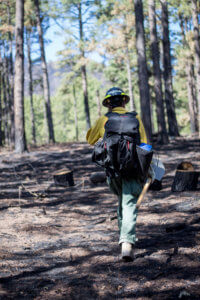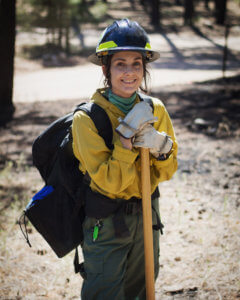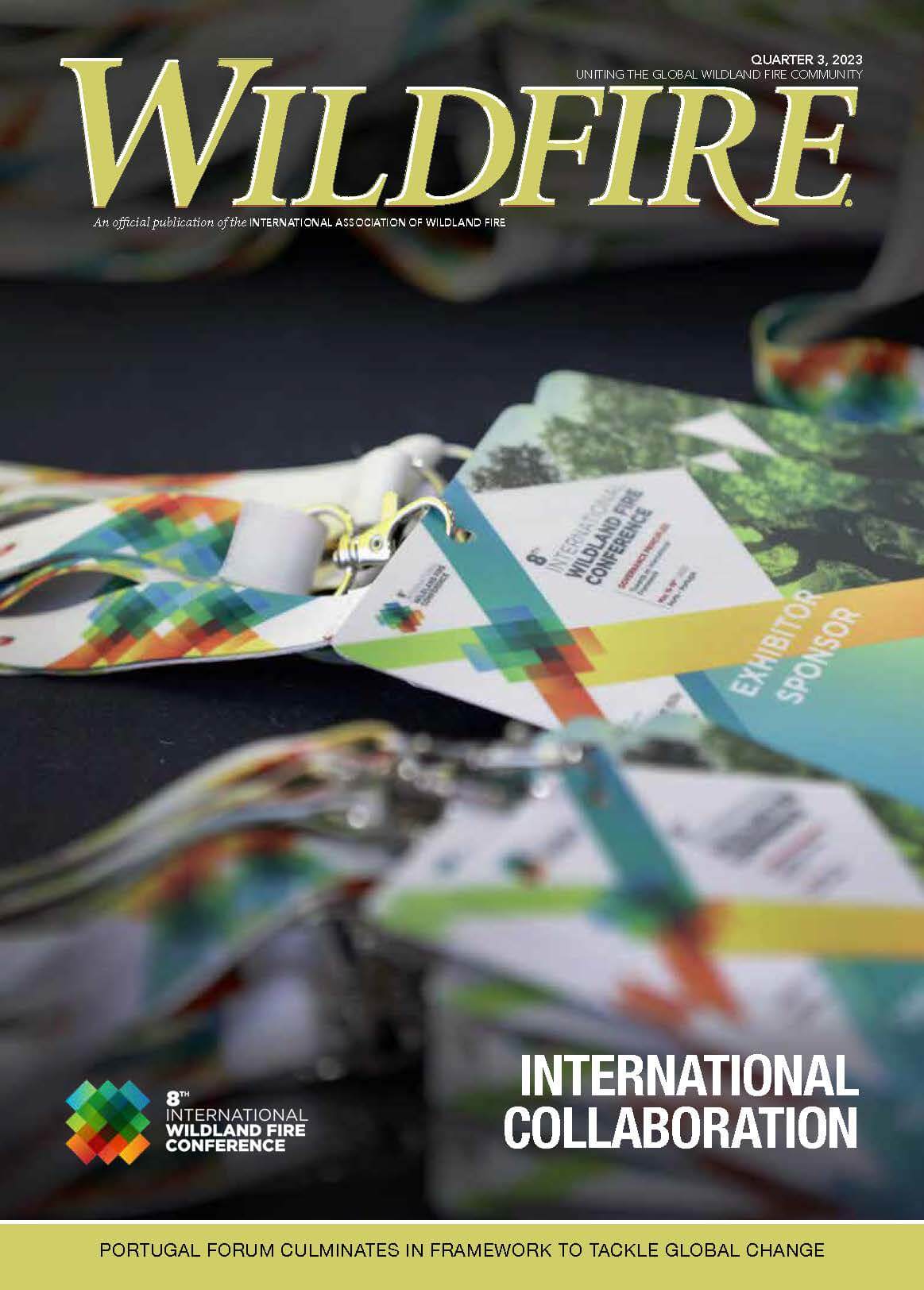 The “Fired Up” initiative features those who have made strides in advancing and contributing to wildfire/bushfire operations, mitigation/prevention, training and research. We invite members of the IAWF and the Wildland fire community at large to submit recommendations for individuals and groups that deserve to have their stories shared for publication.
The “Fired Up” initiative features those who have made strides in advancing and contributing to wildfire/bushfire operations, mitigation/prevention, training and research. We invite members of the IAWF and the Wildland fire community at large to submit recommendations for individuals and groups that deserve to have their stories shared for publication.
Fired Up: Medic on the Fire Line
By Dylan Bruce
A Gatorade bottle, a belt, a parachute cord, and a combi tool. These may not sound like your usual medical supplies, but in a pinch they can create a traction splint.
On the frontline of a wildfire, being able to improvise like this can be a lifesaver, and it’s Molly Barker Bessey’s job to teach these techniques to firefighters. As an Emergency Medical Technician Firefighter, or Fire Line EMT, she provides medical support and emergency services to personnel on the frontlines from her home base in Phoenix, Arizona.
“Our role as wildland medical providers is extremely important on the frontline. Countless hours are spent training for the worst case scenarios because we need to be at our absolute best.”
Working for emergency services provider Wilderness Medics, Molly, is a 32-year-old team leader who has worked on the frontlines of wildfires across the United States.
She got started with Wilderness Medics in 2018 when a co-worker at a local ambulance company in Phoenix, Arizona, told her about it. “He was telling me about this incredible experience he had where he worked as a seasonal medic on forest fires.” “To be honest I had never heard of any professions relating to forest fires, nor did I believe everything he was telling me. He was describing my dream job!” Before long, Molly had met the owners of Wilderness Medics, been interviewed, and passed the tests to be accepted.
Her first of now many wildland fires was the Buzzard Fire in the Gila National Forest in New Mexico, and the coworker who brought her on board is now her husband. From treating blisters and bug bites to marking out spots for helicopter landings, Molly works to get her patients the care they need in the incredibly unpredictable environment that is the frontline of a wildfire.
In most situations a paramedic and an EMT are paired and sent out as a team to the frontlines, however circumstances sometimes demand they split up to cover more ground. She and her team train fire personnel in basic first aid and teach them how to call in emergency traffic over the radio.
“Collectively we ensure the safety of life, the preservation of land, and the protection of values at risk.”
She proudly calls the firefighters and others she works alongside on the frontlines her comrades. “I have the utmost respect for every single man and woman that I have met in my relatively short career.”
An important part of Molly’s work is providing fire information to communities, as well as helping them prepare for post-fire disasters like flooding and mudslides. “These are always difficult conversations to have; some are eager to put the preparation into action and some are quite the opposite.”
She says that even though most people are receptive to the help, she understands how the stress of the situation can make people unwilling to listen. “Not many people can relate to losing absolutely everything. I think it’s important to keep an open dialogue.”
The COVID-19 pandemic has added an extra layer of difficulty to Molly’s work, and necessitated extra steps when handling patients. “The quality of patient care has not changed, however some protocols and treatments have been modified to limit potential exposure. “Masks are a must and temperatures are taken on every patient. We immediately inquire about symptoms and potential exposures.”
With plans to complete her Registered Nurse qualifications in December and her Bachelors Degree of Science and Nursing in 2021, Molly says she is determined to keep working in the field. “I knew when I was three years old I needed to be outside, and I am very thankful to Wilderness Medics for giving me this once in a lifetime opportunity.”

